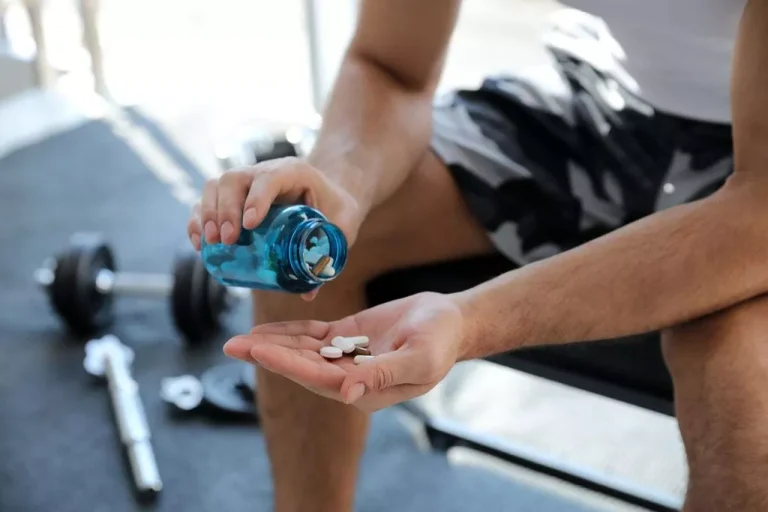
Also, some withdrawal symptoms were more frequent in women versus men, including hypersomnia (77.2% versus 64.8%), fatigue (77.5% versus 70.3%). Cuttler et al. (2016) based on the online survey that assessed the cannabis users’ practices and experiences found that during the withdrawal period men more often than women reported insomnia and vivid dreams, whereas women more often reported nausea and anxiety. Also, significantly more women (44.9%) than men (36.7%) did not experience withdrawal symptoms. Pesce et al. (1994) reported sex differences in withdrawal symptoms of intact and castrated mice that were first treated with subcutaneously implanted pellet of diazepam and then underwent precipitated withdrawal with flumazenil injection.
Part III. Rebound phenomena—definition and examples
Discover the life-changing benefits of rehab centers in PA, your key to lasting recovery from addiction. ‘ from types, symptoms, impacts on health, to available help and resources. Addiction treatment is the best way to get help and overcome dependency or addiction. Some nuances can make it difficult to determine if someone is addicted or dependent on a substance. They’ll take into account a range of social and environmental factors, alongside how long you’ve been taking the drug to decide how best your dosage can be reduced.
- With sustained drug abuse, individuals can develop drug dependence, leading to withdrawal symptoms and intense drug cravings in the absence of the substance.
- Infants born to mothers physically dependent on barbiturates may develop dependence and subsequently experience withdrawal.
- Medication may be needed as part of the alcohol recovery program to speed the brain’s return to healthy activity.
- Because of this confusion, some organizations prefer substance use disorder (SUD).
- Explore the types of mental illnesses that lead to addiction, and effective integrated treatment approaches.
Can Gabapentin Cause Depression?
- It is possible that you’ve already moved past the dependence stage, which is why early detection of these symptoms is key.
- Through them, we access decades of psychological exploration, offering insights into the complex mechanisms of dependence and guiding the empathetic and effective treatment of those affected.
- In contrast to physical dependence, psychological dependence primarily affects behavior and the mental and emotional aspects of addiction.
- Identifying whether you have a physical or psychological dependence on drugs and alcohol can help you find the best course of treatment.
Tried and tested methods such as Cognitive Behavioural Therapy (CBT) help countless people overcome lingering psychological dependence while introducing them to healthier ways of coping with cravings. This might come in the form of home visits from a nurse, or travelling to your GP’s office for regular checkups. If you’re experiencing any mild withdrawal symptoms, you’ll have the chance to receive medications such as anti-sickness tablets, or low-intensity painkillers. This sign of physical dependence might be more apparent to concerned friends or family members who are viewing the condition in their loved ones. When someone is in the throes of physical dependence, it’s not uncommon to lose touch with self-care rituals and forget to look after themselves.
The Empowering Steps of Addiction Recovery
Alcohol, despite its social acceptance, is one of the most physiologically addictive substances. Long-term alcohol use can lead to severe withdrawal symptoms, including potentially life-threatening delirium tremens. In some cases, medications may also be prescribed to help manage psychological symptoms and cravings. Combining medication-assisted treatment with therapy can provide comprehensive support for individuals with both physical and psychological dependence.

While the opioid epidemic rages on, researchers are trying to counter opioid addictions with medications like buprenorphine. It is intended to suppress the symptoms of opioid withdrawal, decrease cravings for opioids, and block the effects of other opioids. The severity of physical dependence and withdrawal symptoms is influenced by the duration and dose of drug use, as well as the age of the user. The American Psychiatric Association (APA) used to distinguish between physical dependence and substance abuse.
- Each program provides different levels of support, incorporating detox, therapy, and aftercare to promote sustained recovery.
- Individuals experiencing psychological dependence may feel a compulsive need to engage in the substance or behavior to cope with emotional distress or to experience pleasure.
- Maia Szalavitz was responsible for the conception of the manuscript, drafted the manuscript, and approved the final published version.
- Less common symptoms include chills, depressed mood and sweating (Budney et al., 2004; Budney and Hughes, 2006; New South Wales Government, 2008; Gorelick et al., 2012; APA, 2013; Bonnet and Preuss, 2017; Schlienz et al., 2017; Table 1).
- This includes recognizing and addressing substitute addictions, where individuals replace one addictive behavior with another.

For example, a person may drink alcohol when they feel stressed but otherwise feel no compulsion to drink. This article reflects the views of the authors and should not be construed to represent FDA’s views or policies. Contact FDA to obtain the most recent and updated recommendations regarding evaluation of drug dependence, withdrawal and rebound.
- Unlike tolerance, which focuses on how much of the substance you need to feel its effect, physical dependence happens when your body starts to rely on the drug.
- Lastly, technology addiction is becoming increasingly prevalent in today’s society.
- However, they can be managed medically or by gradually tapering down the dosage of the substance, under the supervision of a healthcare provider.
- It’s here, in the complex network of neurons and chemicals, that addiction takes root and flourishes.
- In Table 1 are listed the most frequent and relevant acute withdrawal syndromes, rebound and protracted withdrawal syndromes.
- It is only a first step, one which is important for gathering information about potentially serious adverse events of withdrawal, such as convulsions.
Testosterone and anabolic-androgenic steroids withdrawal syndrome
From opioids to alcohol, uncover the truth about substance abuse and brain health. Delve into understanding protracted withdrawal symptoms, their causes, management, and support options. Drug rehab programs vary in length, from short-term options of a few weeks to long-term residential programs lasting up to a year, offering tailored care to address individual needs. Each physiological dependence on alcohol program provides different levels of support, incorporating detox, therapy, and aftercare to promote sustained recovery. Drug rehab is highly effective in aiding long-term sobriety through personalized care, strong support systems, and therapeutic interventions. Success rates vary, but understanding the factors influencing treatment can enhance the recovery journey.
What Causes Addiction? Substance Abuse Theories, Models & More

In most cases, people can manage their physical dependence by slowing tapering the drug instead of stopping it abruptly. Repeated exposure to a substance alters a person’s brain structure and brain chemicals to accommodate a drug. Addiction is interchangeable with the term SUD, and physical dependence falls under the SUD umbrella. Although some people may use the terms interchangeably, physical dependence does differ from addiction. This article will discuss what physical dependence is, as well as its causes, symptoms, and treatments. Not unlike addiction, physiological dependency changes your brain chemistry.
Treatment for Both Physical and Psychological Addiction at Gateway

Discover if a chemical imbalance causes anxiety and explore the latest research on anxiety treatments. Unravel the proper detox definition, debunk myths, and explore natural detoxification for better health. Discover the empowering steps of recovery from addiction, from therapy to resources for help.
Alcohol withdrawal and relapse studies of animals and humans are documenting the triggers that provoke relapse, and they are working to understand why some people are more sensitive than others to these behavior drivers. So, as we delve deeper into the mechanics of addiction, keep in mind that there are new treatments which will guide you through these stages and forward into full recovery. Discover the truth behind “Does drinking alcohol cause hair loss?” Learn causes, effects, and recovery tips. Discover what is sober living, its benefits, rules, and the support you can expect on the path to recovery.
Önceki Yazılar:
- Oxycontin: Uses, Taking, Side Effects, Warnings
- Oyunun Sanatı Futbolun Estetik Yönleri
- Futbol Antrenman Programları ve Teknikleri
- Futbolun Tarihi ve Kökenleri
- Normativas sobre la gestión de derechos de imagen en promociones de casinos
Sonraki Yazılar: